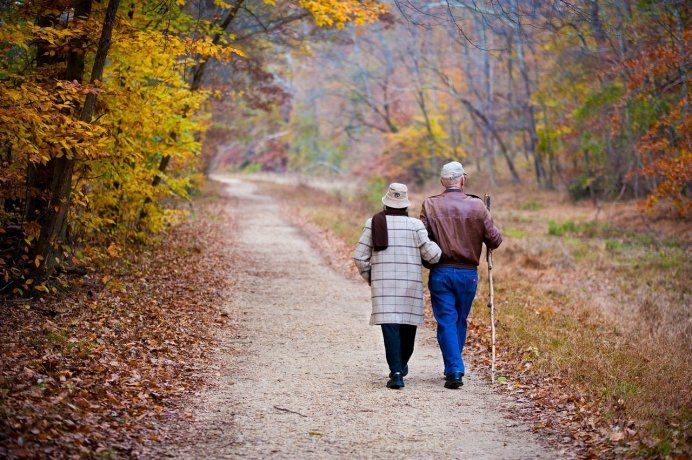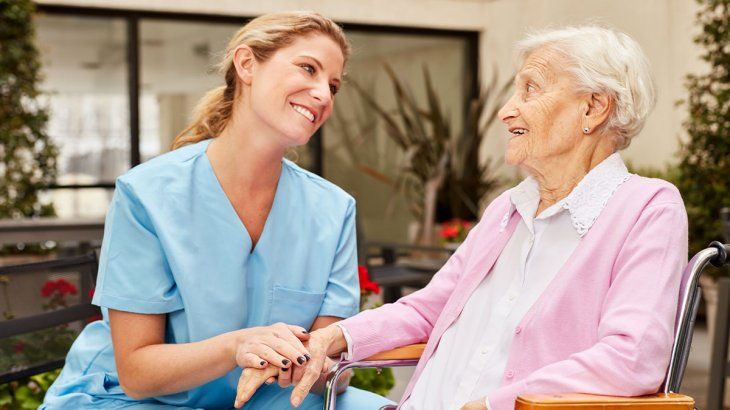Access to mental health in older people in Argentina has significant barriers, according to the report of Humanitarian Observatory of the Argentine Red Cross. In that sense, more than 65% of older adults lack access to some type of therapy linked to mental health.
In this sense, the third edition of the report “Quality of life of older adults in Argentina”prepared by Red Cross Humanitarian Observatoryin 2024, affirmed this lack of therapeutic access in the older adult sector. A situation that causes high rates of anxiety, stress and loneliness.
Health: a mental and physical emergency
In this sense, “66.6% of those surveyed do not access any type of therapy or treatment linked to mental health”, supports the report. In second place, the option of ‘did therapy in the past, but no longer’ appears with 12.8%. The rest of the categories present frequencies of less than 10% and 5%.
Although it is recorded that mental health conditions are less frequent, most people do not use the services availablewhich reinforces the access barriers in this area and presents with manifestations such as anxiety, depression and stress.
Social isolation also appears as an important factor: e33% of those surveyed expressed feeling alone or forgotten for being an older adultmore than in 2021 and 2022 (when the perception was 20%). Furthermore, it is highlighted that economic and geographical limitations are key factors that restrict access to mental health services.
Elderly Care.jpg
A possible solution is found in community programs, support workshops and group activities.
Only a small proportion of older adults can afford individual therapies, while free or subsidized options are scarce. “The lack of infrastructure and specialized personnel leaves a significant percentage without alternatives,” the letter highlights.
Despite the challenges, the report highlights possible solutions such as community programs, support workshops and group activities. These initiatives would create accessible emotional support networks, especially in communities with few resources.
Argentine older adults, in a delicate situation
In Argentina, older adults face inequalities such as 29% of older people do not have their food needs covered, while 40% perceive economic deterioration, warns the report. In addition, there is a situation of vulnerability that affects both their physical and emotional well-being.
The report incorporates the Wellbeing Index of Older Adults (IBAM)a tool that evaluates the dimensions of food, health, economy, recreation and affection. In 2024, its average score was 4.9 out of 10.
Recreation, food and social interaction: keys to emotional and physical well-being
Regarding recreation, food and social interaction, they are factors that play a crucial role in the quality of life of older people. In that sense, the report of the Humanitarian Observatory of the Argentine Red Cross, in 2024, 41% of those surveyed stated that their recreational needs are “little or not at all satisfied.”
Access to adequate food also presents challenges: “29% of older people cannot cover these needs”as a sign of an increase of 12% compared to 2022. Furthermore, only 68% of the participants consider that their nutritional needs are “fairly” or “very satisfied.”
older adults.jpg

The report highlights that it is urgent to guarantee equity in access to essential services.
Pixabay
Regarding social treatment, 26% of those surveyed reported having perceived abuse in public offices in 2024a percentage more than double the 11% registered in 2022. Health centers also reflect this problem, with 21% of older people indicating that they have suffered abuse in these spaces, and the family environment is not exempt, with an increase from 4% in 2022 to 11% in 2024.
Although the report states that 67.7% of those surveyed maintain frequent meetings with friends or close tieslow participation in workshops, courses or other recreational activities (70.7% non-attendance) still remains an important barrier to emotional well-being.
Against this background, the authors of the report highlight that it is urgent to guarantee equity in access to essential services, including recreational spaces, nutritious food and dignified treatment, to improve the quality of life of older people.
Source: Ambito
I am an author and journalist who has worked in the entertainment industry for over a decade. I currently work as a news editor at a major news website, and my focus is on covering the latest trends in entertainment. I also write occasional pieces for other outlets, and have authored two books about the entertainment industry.




